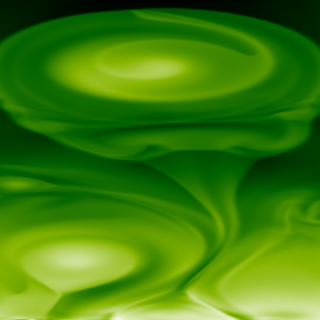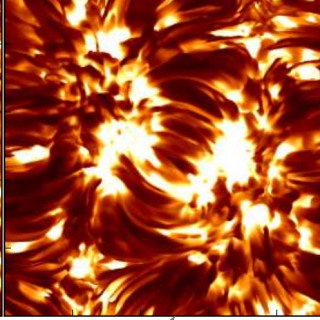Bibcode
Štěpán, J.; Trujillo-Bueno, J.
Referencia bibliográfica
Astronomy and Astrophysics, Volume 557, id.A143, 15 pp.
Fecha de publicación:
9
2013
Revista
Número de citas
82
Número de citas referidas
67
Descripción
The interpretation of the intensity and polarization of the spectral
line radiation produced in the atmosphere of the Sun and of other stars
requires solving a radiative transfer problem that can be very complex,
especially when the main interest lies in modeling the spectral line
polarization produced by scattering processes and the Hanle and Zeeman
effects. One of the difficulties is that the plasma of a stellar
atmosphere can be highly inhomogeneous and dynamic, which implies the
need to solve the non-equilibrium problem of the generation and transfer
of polarized radiation in realistic three-dimensional (3D) stellar
atmospheric models. Here we present PORTA, an efficient multilevel
radiative transfer code we have developed for the simulation of the
spectral line polarization caused by scattering processes and the Hanle
and Zeeman effects in 3D models of stellar atmospheres. The numerical
method of solution is based on the non-linear multigrid iterative method
and on a novel short-characteristics formal solver of the Stokes-vector
transfer equation which uses monotonic Bézier interpolation.
Therefore, with PORTA the computing time needed to obtain at each
spatial grid point the self-consistent values of the atomic density
matrix (which quantifies the excitation state of the atomic system)
scales linearly with the total number of grid points. Another crucial
feature of PORTA is its parallelization strategy, which allows us to
speed up the numerical solution of complicated 3D problems by several
orders of magnitude with respect to sequential radiative transfer
approaches, given its excellent linear scaling with the number of
available processors. The PORTA code can also be conveniently applied to
solve the simpler 3D radiative transfer problem of unpolarized radiation
in multilevel systems.
Proyectos relacionados

Simulación Numérica de Procesos Astrofísicos
La simulación numérica mediante códigos complejos de ordenador es una herramienta fundamental en la investigación física y en la técnica desde hace décadas. El crecimiento vertiginoso de las capacidades informáticas junto con el avance notable de la matemática numérica ha hecho accesible a los centros de investigación de tamaño medio
Daniel Elías
Nóbrega Siverio

Magnetismo, Polarización y Transferencia Radiativa en Astrofísica
Los campos magnéticos están presentes en todos los plasmas astrofísicos y controlan la mayor parte de la variabilidad que se observa en el Universo a escalas temporales intermedias. Se encuentran en estrellas, a lo largo de todo el diagrama de Hertzsprung-Russell, en galaxias, e incluso quizás en el medio intergaláctico. La polarización de la luz
Ernest
Alsina Ballester